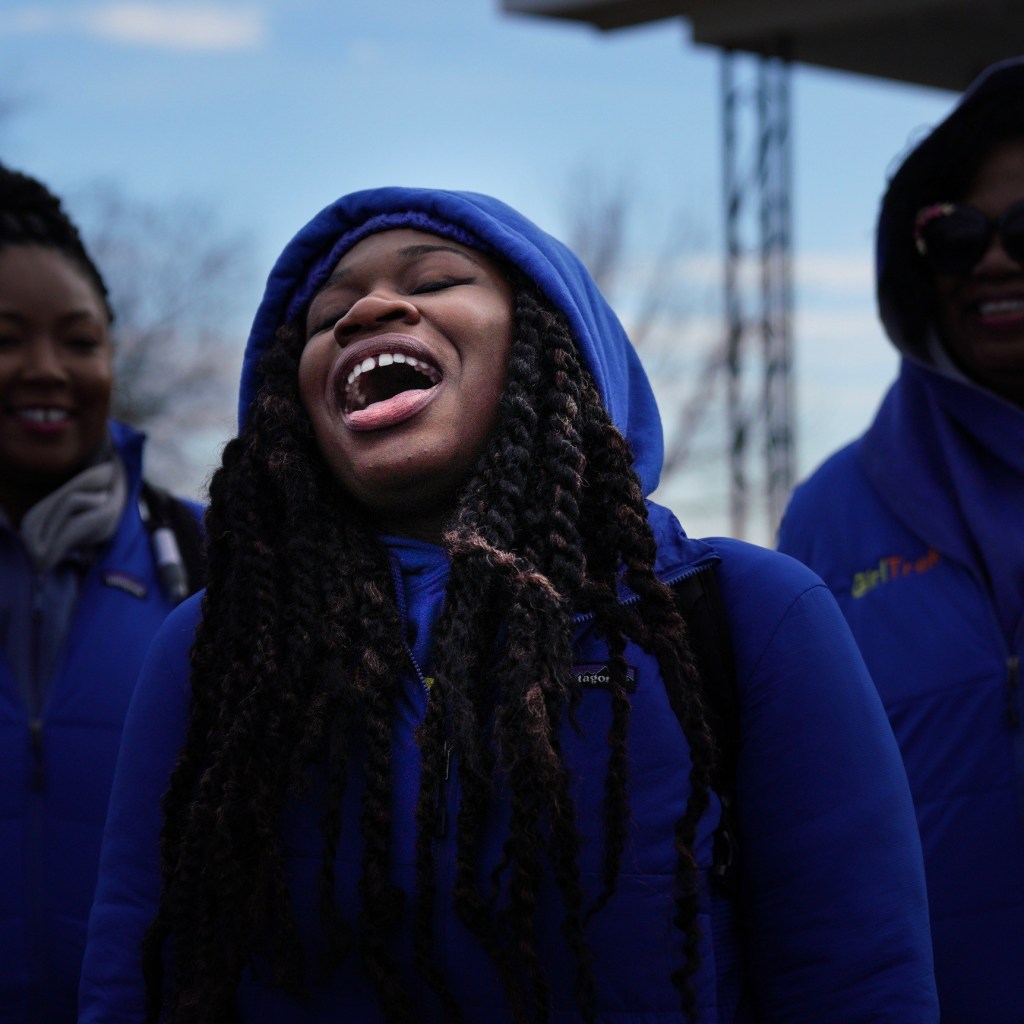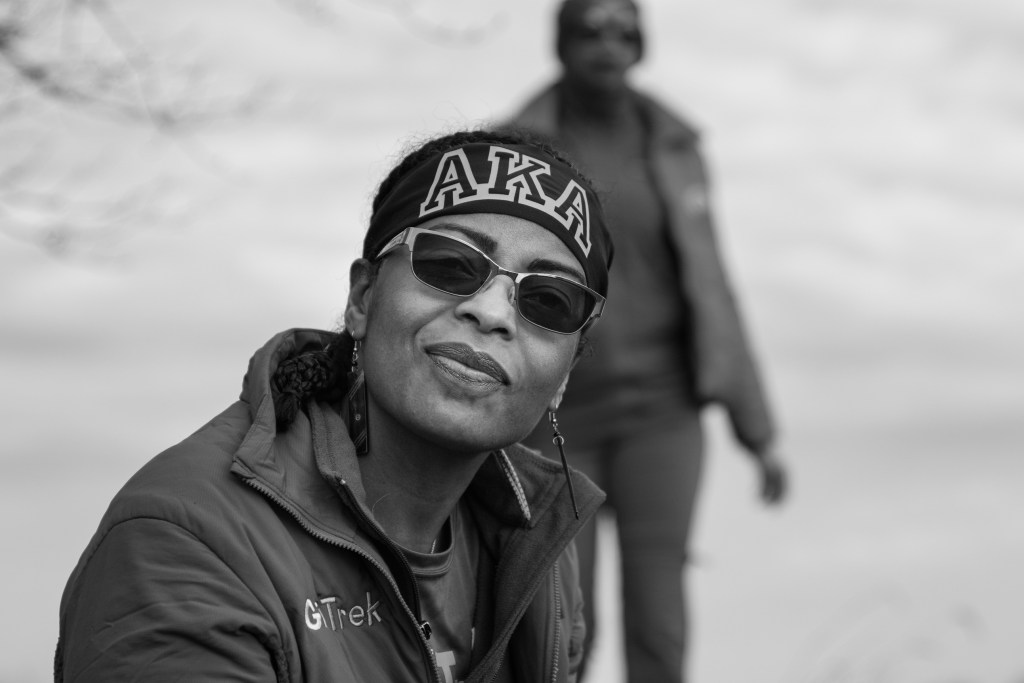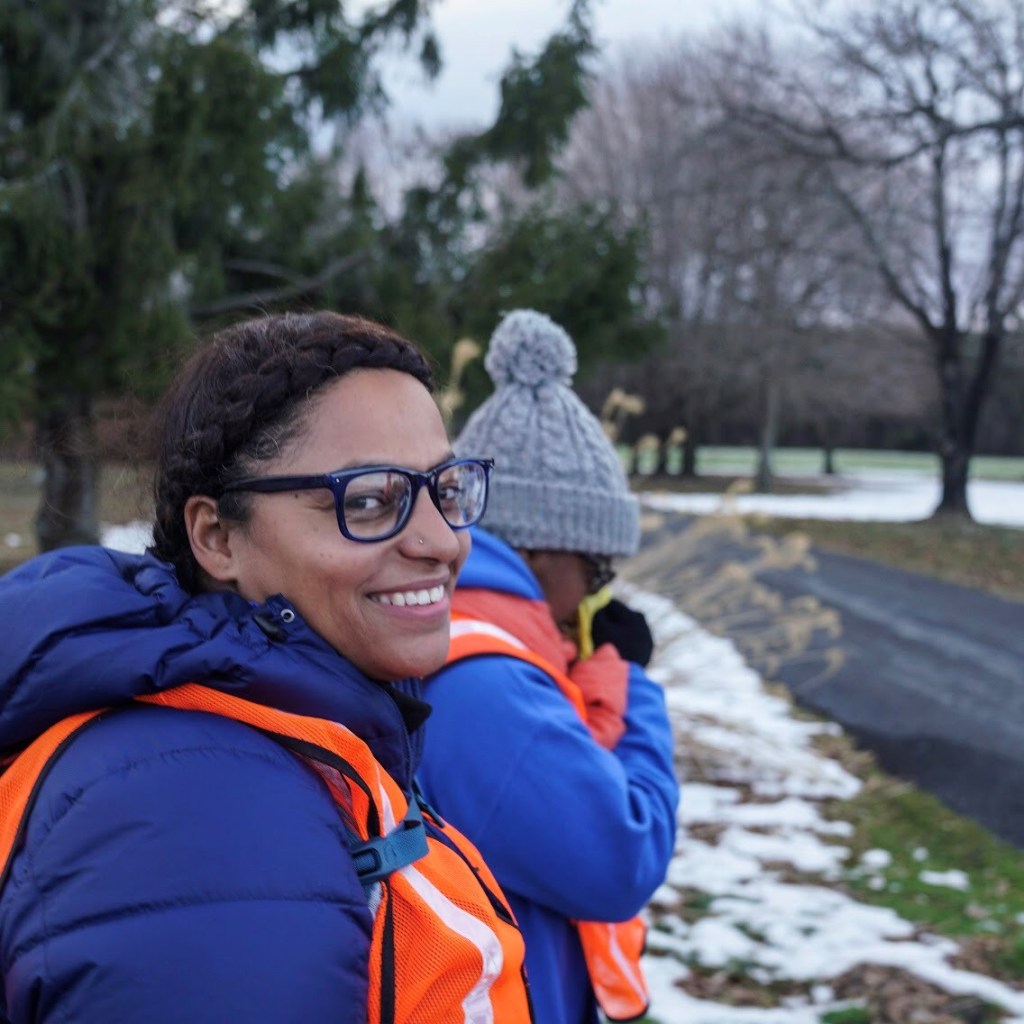On March 6 on the eastern shore of Maryland, a group of Black women gathered in a circle to remember their ancestors’ journeys on this same land. They were about to embark on a 100-mile journey following in the footsteps of Harriet Tubman, who walked her way to freedom along the Underground Railroad in 1849. Organized by GirlTrek, the Black health and wellness advocacy nonprofit, the walk—called Harriet’s Great Escape—aimed to honor Tubman’s legacy. GirlTrek has marked Harriet Tubman Day (March 10) since 2013, the 100-year anniversary of Tubman’s passing, but this year’s trek was the most notable to date. Drawing inspiration from Tubman, the journey had another mission: to bring attention to the health crisis facing Black women and girls.
“We knew we needed to be even bolder and hold this unprecedented trek. Harriet Tubman saved her own life first and then went back time after time to save the lives of others giving us the blueprint for the work GirlTrek does today. This is radical self-care at its core,” GirlTrek cofounder T. Morgan Dixon said.
Black women have the highest rates of coronary heart disease in the country, and a 2017 report from the Institute for Women’s Policy Research found more than one in seven Black women have been told they have diabetes. “People need to understand [the health crisis] is real. These are preventable diseases. They won’t just affect the women that are living today, they will affect the generations that are to come,” said Nicole Hubb, national director of events for GirlTrek.

Nicole Hubb sings. Courtesy of Taylor Rees.
The women in GirlTrek believe that if Harriet Tubman could walk herself to freedom, they can walk themselves to better health. After all, walking has been a healing tradition in Black culture through the ages. “In today’s political climate, a lot of basic liberties seem threatened,” said Jewel Bush, national director of communications for GirlTrek. “The enslaved Africans of Harriet’s time experienced inhumane things I can’t begin to fathom. What we are dealing with now, it’s a different iteration of it. Harriet was bold enough to believe that she could set herself free.”
For five days, these 10 women walked from Maryland to the other side of Mason-Dixon line in Delaware, through sun, wind and snow. “For me, it got rough. Day two was rain that turned into sleet that turned into snow. … Every step was adding insult to injury. I was looking at my sisters’ feet before me, doing what they were doing,” Nicole said. She kept going because, “It an honor to walk in the footsteps of Harriet Tubman, and everything she did for this country. … We need to always be thinking about how we are serving the next person. Someone else is going to live in your house, spend your money, ride your car. But you can have a legacy in the people you help.”

Onika Jervis rests. Courtesy of Taylor Rees.
Harriet’s Great Escape sought to inspire others to make health changes. “When other Black women see [that] regular, but extraordinary, folks of different ages, body types and backgrounds can do this, then they can do extraordinary things too,” Jewel said.
That’s why, at the end of the 100-mile walk, GirlTrek issued a challenge via social media to the Black community: Walk 100 miles in your own hometown by May 10. GirlTrek believes if you walk for just 30 minutes every day, your life will change for the better. Everything, they conclude, starts with health. If you can’t get out of bed, you can’t work to change the rest of the world.
Along the walk it became clear to Onika Jervis, national director of recruitment and outreach for GirlTrek, that solution to the Black health crisis of today is a collective one. “Harriet didn’t get her freedom by herself. There were abolitionists that were Black and white, that helped her along the way,” she said. “It’s going to take the collective to be able to create the new railroad—and we don’t need it to be underground.”

Jewel Bush takes a break. Courtesy of Taylor Rees.
For GirlTrek, it all begins with walking as a community. “When you look at walking in the political sense, you look at the women who boycotted buses in Montgomery, you look at the civil rights marches, you look at Harriet Tubman, who literally walked herself to freedom,” Jewel said. “When Black women walk, things change—for our health, our community, the world.”
